Greetings, fellow adventurers! You might be asking yourself, “Will travel insurance cover COVID-related travel cancellations, flights disruptions or medical claims?” Well, you are not alone, as this is one of the most common concern travelers are worried about.
Having to tackle pandemic related travel restrictions is a hassle in its own right, and ensuring that insurance policies give appropriate coverage today is a necessity.
In this guide, we aim to review travel insurance policies to understand if they deal with COVID-related issues, what they should be dealing with before taking a policy, and what should need to be known to safeguard oneself during travels.
Key Takeaways
- Covid-19 Coverage is Different: Not all travel insurance policies make provisions for COVID related consequences; it depends on the policy and when it was taken out.
- CFAR Add-On (Cancel For Any Reason): It is possible to buy this optional add-on which broadens coverages to include cancellations arising due to COVID-19 concerns.
- Epidemic Coverage Endorsements: Certain insurers provide endorsements to other policies that pay for expenses due to COVID and interruption of trips.
- Timing of the Policy is Important: Policies taken out before the pandemic began have the differently to policies issued post-covid.
Always look for the hidden document off the main one: In every policy taken, there are terms of exclusions and requirements. Always ensure you check your policy in depth.
Understanding Travel Insurance and COVID-19 Coverage
Let’s now dive into discovering what travel insurance actually is and how it can relate to covid 19.
What Is Travel Insurance?
Travel insurance is an insurance traveler’s purchase before commencing a trip so as to safeguard them against unexpected circumstances which risks their travel plan. These circumstances are not limited to trip cancellations and interruptions, medical emergencies, and luggage problems. With insurance policies, coverage varies with each provider, with some offering better terms than others.
How Does COVID-19 Affect Travel Insurance?
The COVID-19 pandemic has new folds it added to travel insurance policies. For example, most take it for granted that travel insurance covers all medical issues surrounding Covid-19, but in reality, that was questionable.
Travel insurance has existed for a long time and it seemed all its policies were up to date with modern issues. On the contrary, for policies with blanket exclusions, travel insurance for pandemics always have blanket exclusions on it which for unforeseen circumstances.
Types of Coverage for COVID-19
Now let us analyze possible coverage options that could apply on services relating to Covid-19.
1. Trip Cancellation and Interruption
If you or one of your immediate family members falls sick and gets diagnosed with Covid-19 its not a novel sickness, claiming any death benefits for cancellation pay may be possible. Depending on the circumstances under which the insurance is bought, these claims are not guaranteed.
2. Emergency Medical Coverage
In the case you get COVID-19 while on a trip, emergency medical coverage may assist you in getting the proper treatment and paying for procedure costs such as hospital admissions or doctor visits. Make sure to check your policies as coverage is not universal.
3. Quarantine Expenses
Some policies cover meals and additional lodgings charged to a traveler who is require to quarantine abroad, but usually only for a limited period.
4. “Cancel For Any Reason” (CFAR) Add-On
Triggers for trip cancellations that reside outside the realm of normal insurance policies, including the fear of COVID-19, can be accommodated with CFAR add-ons. These tend to be partially reimbursable provided there is a window of time limitation between the purchase of a ticket and the addition of abovementioned features.
Real-Life Scenario: Sarah’s Experience with COVID-19 and Travel Insurance
I will relate to you a story of a woman I met named Sarah. Sarah is a freelance graphic designer and resides in Austin Texas. For months she was buying airline tickets and booking hotels because she wanted to go on her dream vacation in Europe. When the date of departure was approaching, she was worried about the COVID-19 positive cases in Europe.
Sarah opted to buy travel insurance with a “Cancel For Any Reason” (CFAR) provision. Unfortunately, she was diagnosed with COVID-19 only days before her travel. However, due to her CFAR add-on, she was able to cancel the trip and got reimbursed partially for the non-refundable charges.
This case demonstrates the essentiality of evaluating different options of insurance available, as well as the appropriate measures needed in order to avoid unplanned eventualities.
Factors That Affect COVID-19 Coverage in Travel Insurance
Travel insurance is a very personalized service which is… tailored to the individual needs of the traveler. The question of whether a certain insurance covers virus-related expenses is governed by many other important considerations. The reason for many travelers not receiving payments for cancellation is because of policy timing, its details, and sometimes your destination.
To begin, let’s consider timing—specifically, your purchase date. If you bought travel insurance prior to the official announcement of COVID-19, your insurance provider may view the virus as an “unforeseen event.” That would likely mean you had less restrictions during the pandemic’s scheduling, including travel and medical services relating to the disease. On the contrary, if your insurance was bought after the pandemic commenced and COVID-19 was a foreseen risk, it would not be included unless your insurance attested otherwise. A great number of insurance providers updated policies soon after the disease was considered a foreseeable risk, meaning newer contracts have a virus-related protection clause by default.
Another major issue is your policy’s terms and conditions. I can’t stress this enough: make sure to read the t&cs thoroughly. Something that might sound like coverage “yes or no” answer often lurks in the fine print. Some policies have limited pandemic coverage clauses where they would not reimburse cancellations made out of concern or fear.
Others may only provide coverage if you or your traveling companion are diagnosed with COVID-19. There are also other clauses for delay, interruption, or quarantine periods which come with their own set of rules. Some benefits might be accessible only if you test positive or show the requisite symptoms within specified timeframes while traveling.
Your travel destination is now more relevant than it ever before. Different areas of the world have different COVID-19 rules and restrictions such as requiring proof of testing or vaccination, and some even having mandatory quarantine periods upon entry.
If you are traveling to a region known for sudden lockdowns or stricter requirements, your insurance provider might impose certain exclusions for that region. There are instances where insurers do not provide complete coverage for regions under travel advisories issued by their government, particularly if the risk level is deemed high.
Finally, your vaccination status may have an impact during some scenarios. Some insurance providers now enquiries whether one is fully vaccinated before rendering particular inclusions of benefit. As an example, if one is unvaccinated and traveling to a certain country that mandates it, the insurance provider will most likely deny any claims pertaining to COVID exposure or treatment. It is not about forcing to one decision, rather, a lot of companies look at being vaccinated as part of responsible travel preparations. Hence, it is better to follow what the insurer expects and understand how it might affect the claim eligibility.
Tips for Ensuring Adequate COVID-19 Coverage
Let’s face it: no one can deny how traveling around the world during a pandemic would take more planning than it used to. In reality, you do not need the mind of a legal expert, or an insurance guru to ensure adequate coverage. What is needed is to be proactive, ask the right questions, and look at a few critical details while paying attention to them. Hence, for those looking for peace of mind prior to heading for their next trip, here are a few recommendations that I personally follow and recommend to others.
Last minute changes and cancelling a trip can be a hassle. To mitigate these issues, having vacation insurance is essential, Travel insurance should be acquired directly after purchasing your trip to maximize benefits. This will provide the widest array of perks available, especially time sensitive ones such as “Cancel For Any Reason” (CFAR) coverage which must be added within 14-21 days of booking. Once booked, roaming insurance or other protective coverage can be offered.
For those nervous about travelling post pandemic CFAR is invaluable. Although I have heard claims suggesting it is not worth the money, in today’s world, protecting oneself against an unnecessary loss of finances is the best way to live stress free. Unlike conventional coverage, CFAR allows you to cancel a trip for personal concerns, be it sentiment towards them or simply due to feeling uncomfortable while traveling. While it doesn’t fully cover the expenses, it is flexible enough to be comforting.
Another crucial stage is checking the exclusions in your policy. These are the areas which you cannot go to and are referred to as “no-go” zones. Examine how your policy treats pandemics, quarantines, and border closures. Make sure you know what a “covered reason” entails and if some documentation like a positive COVID test is necessary for your claim to be processed.
Something that many travelers tend to overlook is keeping documentation of all things related to COVID at all times. If you contract the virus, obtain the results from an authorized facility. In case your flight is canceled due to government restrictions, make sure to save the announcement from either the airline or any official entity. In case you have to quarantine, make sure there’s documented proof. You may need these details when filing your claim. You do not want the situation where you have a valid reason to seek reimbursement but no proof to support the claim.
My Opinion
Understanding travel insurance options during the COVID-19 pandemic may be challenging, however, knowing your options remains imperative. Ensuring the right insurance is obtained, attention is paid to the details of the policy and remaining up to date, your traveling plans are shielded from unanticipated COVID-related challenges.
As a reminder, do not forget to review the specific terms of your policy and reach out to your insurance company to make certain you possess the requisite coverage.
Have a great trip!




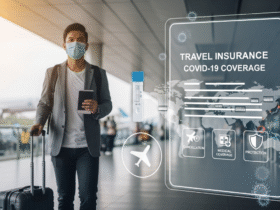









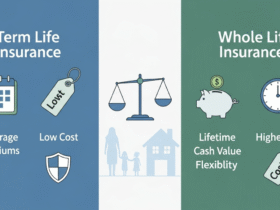







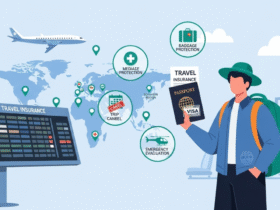



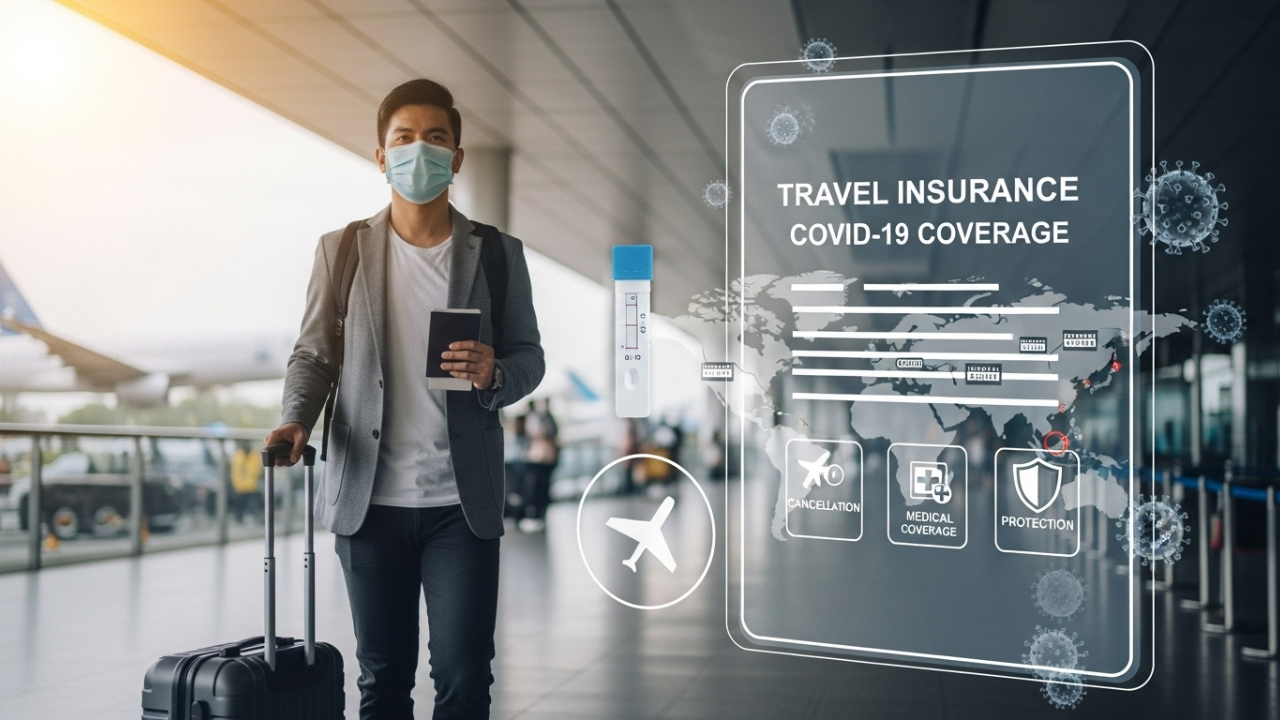
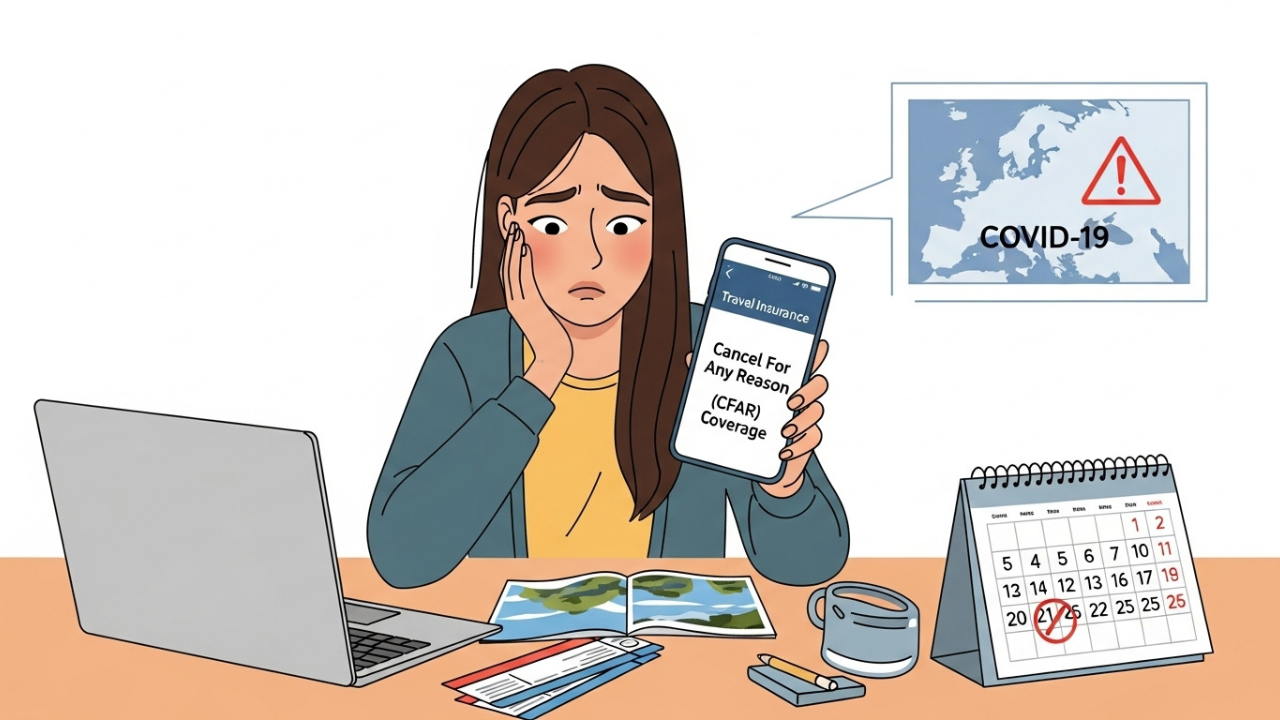


Leave a Reply